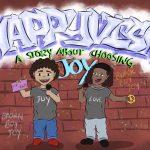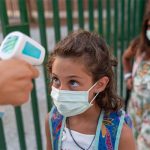“Online learning must ensure the quality and equity of student learning,” says Jia Cai, a first-year student in the Neag School of Education’s Higher Education and Students Affairs master’s program. “Classes cannot be taught in a way that fits solely the institution’s convenience and preferences. Do not let the inequity that already exists in our higher-education system continue to haunt students with disadvantages in an online environment.”
On December 15, the Brown Center for Education Policy at Brookings and the National Center for Research on Education Access and Choice (REACH) will cohost a webinar that examines the changing landscape for U.S. schools and education policy.
Teachers and professors can play a huge role in supporting students at this time said Sandra Chafouleas, distinguished professor in the Neag School of Education at UConn. Just checking in can be very impactful.
“We all know remote learning will never replace the classroom experience. We also know that the health and safety of our students, staff, and their families must be the primary consideration when making decisions about school operations. The two are not mutually exclusive. In an effort to promote the best continuity of education in Connecticut, whether in person or remotely, we must use the resources available, plan accordingly, and act responsibly,” writes Miguel Cardona.
When Valentin closed on a new home in mid-March, he never thought schools would be shut down before the end of the week. Valentin, one of five fourth grade teachers at his school, began teaching in-person classes again this fall. He said he is “pleasantly surprised” that in-person learning has remained possible through October.
On the way home from a hip-hop education conference last year, Justis Lopez ’14 (ED), ’15 (MA) and his colleague Ryan Parker were unpacking what they had learned and what they were feeling that day. They started to freestyle rap and found themselves filled with joy, repeating the verse ‘I’m feeling so happy.’ Their freestyling turned into a song called “HAPPYVISM” that is now part of a greater initiative they have named Project Happyvism.
Violet Jiménez Sims, associate director of teacher education for School-University Partnership at the University of Connecticut’s Neag School of Education, agrees that this year is certainly different. Over the summer, UConn met with partner districts to map out clinical placements. The first thing they learned: not everyone’s definition of hybrid is the same.
“Some were pivoting from in-person to virtual learning and grappling with how many individuals would be allowed in classrooms,” Sims said.
Editor’s Note: The following piece was originally published in UConn Today. In-person, hybrid, remote, and/or home-school – the options for K-12 schooling during the pandemic are complicated, each with their own pros and cons. UConn Today asked psychologist Sandra Chafouleas, Board of Trustees Distinguished Professor and Neag Endowed Professor in the Department of Educational Psychology, […]
“The process of being creative does a whole bunch of really good things for us,” physically and mentally, said James C. Kaufman, professor of educational psychology at the Neag School of Education at the University of Connecticut in Storrs. Kaufman, who has written extensively about creativity, said there are many reasons why a stimulating hobby can help us. The first is pretty simple: It’s fun.
Kathleen Lynch, a professor at UConn’d Nead School of Education, noted that research on the summer slide — and how it affects different groups of students — remains mixed. “I do think some caution is warranted in making projections about COVID learning losses extrapolating from summer learning loss studies,” she said.


